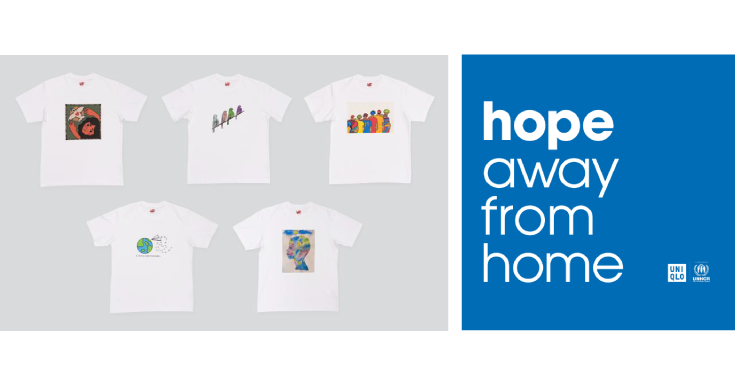Snack Attack
Toddlers have relatively higher metabolisms than adults, thus, they actually need to snack between meals to fuel all that energy. Plus, their small tummies can’t take in that much food at a time. The secrets to make snacking count for your little one is to serve nutritious snacks and pace them well. Read on…
Snacking has always been a debate between well-meaning parents of toddlers. Some are totally for it as they back their opinion with the fact that toddlers need the extra energy to play, grow and develop, while the ones who are against it are mostly concerned about unnecessary weight gain and spoiling their little ones’ appetites for their main meals.
The truth is, toddlers do need to snack, especially when they’re hungry. Firstly, hunger is the young body’s way of indicating that more food is needed for energy. A toddler has not yet lived long enough to form any bad over-eating habits like many adults have, and their hunger pangs are mostly justified. Secondly, little ones are not capable of dealing with hunger pangs in between meals (even some adults can’t!).
Table of Contents
Healthy snacking from young
So, as the provider of your little one’s nutritional needs, you will want to ensure that whatever you offer is of the best quality and of course, that it suits the purpose. After all, a snack is just that – a mini-meal in between main meals. Hence, you’ll want to make sure that what you offer is nutritionally sufficient and at the same time, keeps that little yummy suitably satisfied till lunch or dinner. How do you do that? By starting your toddler on a healthy snacking habit from as young as possible. You can begin by holding off those sugar-laden cookies and whipping up some healthier options such as some carrot sticks with home-made dip; a hard-boiled egg; or even some chopped up fruit! Get the picture?
Snacks can keep younger children from getting so hungry that they become cranky and for little picky eaters, a healthy snack can be added insurance that they’re getting the necessary nutrients needed to thrive. This doesn’t mean that giving your child a snack, any kind of snack, half an hour before dinner is suddenly acceptable! Pace out the snacks midway between main meals and mind the portions too. That way, your child will still have an appetite when the family sits down for dinner.
Snacking etiquette
Care to know a secret to healthy eating for toddlers? When you offer snacks at home, let it be at the table, in a properly seated manner. Habits such as these discourages eating while playing, which includes running around. Hence, not only will it deter possible choking hazards, it also promotes good table manners as well.
Have regular snack times
When little children are allowed to eat whenever they want, they will have no incentive to eat at mealtimes. Most parents want their children to eat (and to eat well) at meals for a variety of reasons, including the fact that mealtimes are typically when new foods are introduced. So, like everything else in a child’s life, snacking should be in some form of schedule too. Timing your child’s snacks at the same everyday will also help regulate his or her system to make use of the fuel provided more efficiently. Try your best to keep to a regular snacking schedule, even when you’re travelling, for this might actually save the day by deterring any cranky episodes brought about by hungry tummies.
Treat foods vs Snacks
Many snack foods that are marketed to kids are full of refined flour, sugar, salt and even taste enhancers. These foods might be just ok to be eaten occasionally, but it’s not likely that they will provide any significant amount of nutrients your child needs the most (such as calcium, iron and fiber). Furthermore, many of such snacks teach kids to associate “snack” with “treat”. The smarter snacking strategy would be to encourage healthy, nutritious foods, in smaller portions and keep these as much as possible from the whole foods or minimally processed categories.
It’s in your hands
The younger your child is, the more influence you have over him or her and this includes your child’s eating patterns. Toddlers can’t run out to the store for candy and chips. They’ll eat what’s served to them and ask for what they know is available in the house. This is really the best opportunity to set the stage for healthy eating in your young impressionable one!
Stock up on fresh foods that are high in nutrients. Try to avoid prepackaged, processed ones, which tend to be high in sugar, salt, and fat. If your child goes to daycare, ask what kinds of snacks are served there. If you don’t approve, pack your own. This might take a bit of extra planning the night before, but it will make a world of difference for your child’s health.
Portion size
Snacks are not meant to be heavy or too filling for a little child. In fact, no meal should be too filling. Snacks should be comparably smaller in size than a regular meal, yet nutritious enough to keep a young body healthy. A cup of chopped fruits (high in vitamins) or a kiddie-size tub of yogurt (high in calcium) are examples of good snack choices. While water is always the best drink to offer a child at anytime including snack times, diluted fruit juices will also do nicely.





















Leave a comment